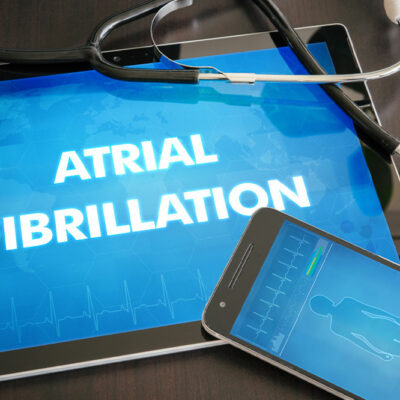11 early warning signs of amyotrophic lateral sclerosis

Amyotrophic lateral sclerosis (ALS), also known as Lou Gehrig’s disease, is a neurodegenerative disorder that affects the nerve cells in the brain and spinal cord. It results in the loss of muscle control and tends to worsen over time. The exact causes of the disease are yet to be identified, but experts can recommend certain treatments and therapies that help improve the quality of life of those affected. Following are 11 early warning signs of ALS.
Muscle weakness
Someone who develops muscle weakness out of the ordinary might be at risk of ALS. One may notice the development of symptoms in a specific limb, leg, or arm. Motor neurons are gradually lost, due to which the muscles controlled by them gradually become weak and non-functional. This results in weaker muscles and disability, which eventually turn worse. The loss of muscle strength could also affect everyday tasks, such as climbing stairs, lifting objects, or holding a cup.
Trouble swallowing
The process of swallowing involves a number of muscles that work together, including the tongue, jaw, lips, and throat. If they are affected by ALS, it could disrupt the harmony and make it tedious for them to swallow, which is termed dysphagia. A few signs include frequent coughing or choking on food while swallowing, longer mealtimes, and the need for smaller bites and sips. Any such symptoms must be diagnosed and treated by a healthcare professional immediately.
Speech problems
Another common early warning sign of amyotrophic lateral sclerosis is trouble with speech. The gradual decline of muscle strength and control would make it difficult for those affected to talk clearly, which may require additional effort by the speaker and listener. Those who develop problems with their speaking ability might exhibit signs like slurred speech. They may also need help to articulate and speak words properly.
Muscle cramps
One may develop muscle cramps for multiple reasons, including physical overexertion, injuries, muscle fatigue, and dehydration. However, if the sign is constant and starts to worsen with time, one should check with an expert for the onset of ALS. This results from progressing disturbances of signals from the nerves to the muscles that occur in ALS. The sign may flare up in a single affected limb or multiple regions of the body. While they might not be painful, the constant twitching in the muscles could interfere with an individual’s sleep and affect other physical activities.
Fatigue
An overlooked sign of progressive neurological disease is fatigue. It may result from other symptoms of amyotrophic lateral sclerosis, such as muscle weakness and spasticity. The impact of fatigue could range from mild to extreme exhaustion, with people often reporting feeling tired, weak, and lacking energy. Since fatigue could be mistaken as a sign of other health complications, it is essential to speak to an expert for an accurate diagnosis. A few noticeable signs of fatigue include slower body movements, lower voice volume, and constant irritability.
Muscle spasticity
Symptoms like muscle spasticity and severe muscle stiffness are a few early warning signs of the motor neuron condition. One may notice their muscles becoming more tense and rigid, which could restrict their movements and also lead to discomfort. These signs of amyotrophic lateral sclerosis could also be misidentified as muscle cramps or other musculoskeletal issues. Therefore, if one notices muscle spasticity, one must speak with an expert immediately, who may recommend immediate treatment and management methods.
Disruptions with fine motor skills
Trouble with fine motor skills might also be an early indicator of ALS. Since the disease affects everyone differently, some people might lose their fine motor skills, such as applying makeup, writing, or even buttoning a shirt. While these signs are subtle at first, they might turn more noticeable as the disease progresses. It’s also why one should speak to an expert to identify the potential cause as soon as they notice the slightest onset of ALS symptoms.
Shortness of breath
An individual may experience shortness of breath for multiple reasons, such as extensive exercise, a common cold, or due to reactions to allergens in the atmosphere. However, the sign is also a potential indicator of the development of ALS. The disease may affect the respiratory muscles, which maintain pulmonary function – how well the lungs work. This may occur especially in people with underlying lung disease, such as chronic obstructive pulmonary disease (COPD).
Uncontrollable periods of laughing or crying
Someone with ALS may also show symptoms like uncontrollable or inappropriate bursts of laughing or crying. It may occur due to the pseudobulbar affect (PBA), a condition resulting from brain injury, or an underlying neurological condition, such as amyotrophic lateral sclerosis. While laughing or crying are easy to trigger based on an emotional moment, someone with ALS may find it difficult to restrain the signs. The symptoms may also be more intense and last longer than expected.
Dementia
An individual might suffer from problems with their memory for multiple reasons, including a brain injury, and age. This may also occur due to the onset of health complications such as amyotrophic lateral sclerosis. While the symptoms are usually mild, one may exhibit symptoms like dementia, a severe type of brain disorder affecting attention, memory, planning, and organized thinking. While the research to determine its cause in ALS patients is still ongoing, experts believe dementia results from damage to cells in the temporal and frontal lobes of the brain.
Depression and anxiety
Amyotrophic lateral sclerosis is a disease that could lead to mental health changes that may occur as one becomes more aware of their condition. Depression and anxiety are two of these complications that are common in people with neurological diseases. Symptoms include feelings of loss, grief, and anger. These feelings may also lead to reduced focus and a lack of motivation. Therefore, affected people should consult with an expert about their condition and seek a support group to cope better and improve their approach towards life.








